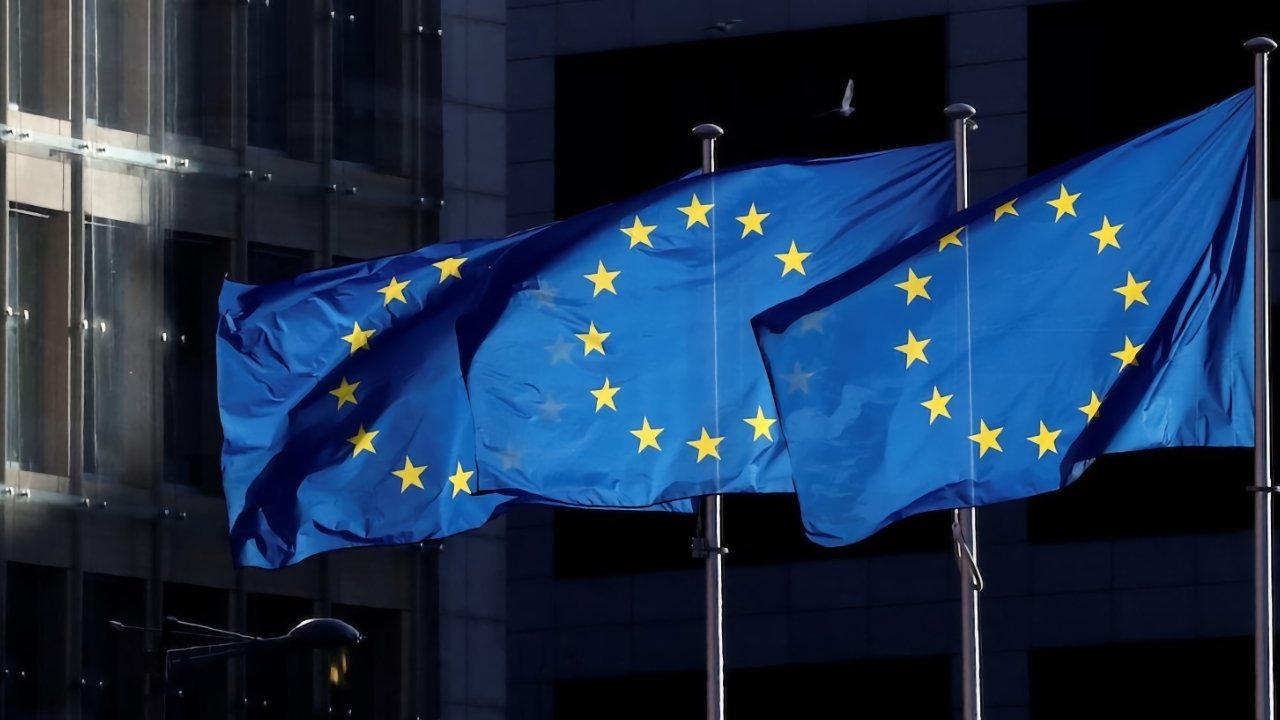European lawmakers have given the green light to antitrust law changes targeting self-preferencing by Apple and other big tech companies, but there are fears that it will be difficult to enforce the regulations.
Following months of negotiations and over a year and a half after being proposed, the European Parliament has approved the final iterations of the Digital Markets Act and Digital Services Act. The legal reforms, which seek to curb the power of tech giants over the rest of the industry, have taken a major step towards becoming European law.
Ratified by MEPs on Tuesday, the DMA is a set of rules that cracks down on antitrust behavior, geared towards encouraging competition. The DSA passed with 588 votes in favor, reports ETNews, with only 11 votes against, and 31 abstentions.
Obligations are set for the "gatekeepers" to "ensure a fairer business environment and more services to consumers," the European Parliament says. These rules include allowing third-parties to "inter-operate" with services, such as enabling other firms to work with Apple's Messages platform.
It will also enable business users to access data they generate on a platform, enabling promotion and concluding contracts with customers outside of the platforms.
Platforms, such as those run by Apple, will be prevented from ranking their own services and products more favorably in generic search results. They will also be stopped from preventing users from easily uninstalling preloaded software or apps, or from accessing third-party app stores, and from processing user's personal data for targeted advertising.
These last points could greatly affect Apple, which has repeatedly fought to maintain the App Store as the only storefront consumers can easily access.
The DSA, which limits how companies can use any user data they collect for commercial activities and forces platforms to police user content to eliminate false information and hate speech, similarly passed with 539 votes for, 54 against, and with 30 abstentions.
These rules include obligations for platforms to act quicky over illegal content while maintaining fundamental rights, such as freedom of expression and data protection. There's also rules about "strengthened traceability and checks on traders in online marketplaces," more transparency and accountability of platforms, and bans on misleading practices and certain types of advertising.
While passed, the DSA and DMA won't become law until they gain final approval from the 27 EU member states, though this is typically a trivial matter. It could take a few months for that to occur, and since the DSA will apply across the EU 15 months or from January 2024 after the "entry into force," it's possible that Apple could have to start working to comply with the rules before the end of 2023.
The DMA will start to apply six months following its own "entry into force," with gatekeepers such as Apple having up to six months after being designated as such to comply.
Non-compliance with the rules could be costly to the companies involved. Following market investigations, the European Commission would have the power to impose fines of up to 10% of a company's total worldwide turnover in the preceding financial year, or up to 20% in cases of repeated non-complance.
DSA rapporteur Chistel Schaldemous said ""For too long tech giants have benefited from an absence of rules. The digital world has developed into a Wild West, with the biggest and strongest setting the rules. But there is a new sheriff in town - the DSA. Now rules and rights will be strengthened. We are opening up the black box of algorithms so that we can have a proper look at the moneymaking machines behind these social platforms."
 Malcolm Owen
Malcolm Owen







-m.jpg)






 Marko Zivkovic
Marko Zivkovic
 Christine McKee
Christine McKee
 Andrew Orr
Andrew Orr
 Andrew O'Hara
Andrew O'Hara
 William Gallagher
William Gallagher

 Mike Wuerthele
Mike Wuerthele
 Bon Adamson
Bon Adamson




-m.jpg)



44 Comments
Boo EU.
Apple is not a digital gatekeeper, they are a product company, like Nintendo.
I don’t see this affecting Apple in a significant way. Apple will have to make some adjustments in peripheral business practices, but the ad-sellers (Facebook and Google) are much more affected.